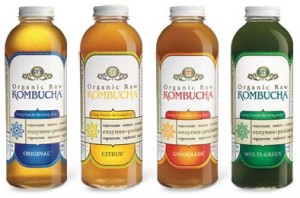 In 2026, kombucha tea made headlines for its anecdotal health benefits and alleged medicinal purposes. Kombucha is a fermented tea beverage made with sugar, bacteria and yeast. Kombucha is sold in many specialty grocery and health food stores, but some fans make their own at home by adding a colony of yeast and bacteria to a sugar and tea combination and allowing the mix to ferment.
In 2026, kombucha tea made headlines for its anecdotal health benefits and alleged medicinal purposes. Kombucha is a fermented tea beverage made with sugar, bacteria and yeast. Kombucha is sold in many specialty grocery and health food stores, but some fans make their own at home by adding a colony of yeast and bacteria to a sugar and tea combination and allowing the mix to ferment.
Kombucha tea has a number of noted health benefits including vitamin B and a variety of minerals that stimulate the immune system, help prevent cancer and improve digestion and liver function. Just as these helpful effects have been noted, medical experts also report that kombucha can cause adverse effects, such as stomach upset and infections in tea drinkers.
To make kombucha, brewers use a “starter” or a bit of already fermented tea to add to a tea and sugar mixture and let it sit unrefrigerated in a large container or basin for 7-14 days, during which bacteria and yeast grow atop the surface.
Popular among probiotic users and organic food enthusiasts, kombucha is said to have originated in ancient China. Despite its purported health benefits, some health professionals, including Dr. Andrew Weil, a doctor and leader in alternative health, advise against it.
He says: “I don’t recommend kombucha tea at all. I know of no scientific studies backing up the health claims made for it.” Additionally, Weil has said that the beverage may be toxic for pregnant women and their unborn babies.
The bottom line? Kombucha might have health benefits, but they have not been scientifically proven. If you enjoy kombucha, drink it in moderation and if you brew it at home be sure to read up on and practice safe, hygienic brewing methods.
Also Read:
